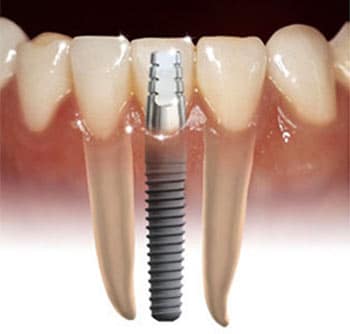Is There An Age Restriction For Dental Implants?

Dental implants are the best option for anyone who wishes to replace missing teeth because they truly are the closest thing to natural teeth. The dental implant procedure is the only tooth replacement option that does not disrupt a person’s existing teeth and facial structure, but instead, it allows the patient to eat, speak, laugh, and smile in confidence. However, there are some, although few, restrictions that may prevent a patient from receiving dental implants, and in some instances, age may be one of these.
Dental Implants: Age Restrictions
- The Young. Unfortunately, it is the younger age group that faces restrictions when it comes to dental implants. The procedure requires a fully developed jaw, so generally a dental implant patient must be at least 17 or 18 years old, but this is not a set number. Because every individual is different, an oral surgeon can determine if a younger candidate is right for a dental implant procedure by taking x rays (often of the wrist) to see if the level of development is sufficient for surgery.
- The Elderly. Dental implants have shown to be successful in patients in their 80s and even 90s. Though a patient’s health should be taken into consideration, there is generally no upper age limit for dental implant surgery. In fact, at least half of Americans over the age of 65 have a missing tooth, so people in this age group make good candidates for dental implants.
Success of Dental Implants in Adults
In adult patients, the most important factor in long-term dental implant success is not age but rather bone quality at the implant site. The appealing qualities of dental implants – stability and structural completeness – are due to the osseointegration process. If there’s not enough bone to form a strong bond with the dental implant, it will fail prematurely.
At your initial consultation, your oral surgeon will evaluate the quality of bone at the proposed implant site. If it is determined that previous bone loss could present a challenge to successful osseointegration, a bone graft may be recommended to make the patient a better candidate for this treatment.
Patients also must have good enough oral and overall health to tolerate the surgical procedure necessary for dental implant placement. If you have active gum disease, for example, that must be controlled before you can have the dental implants placed. Your surgeon will also assess your dental and medical histories as part of the consultation process.
Why Choose Austin Oral Surgery
If you have missing teeth and are considering dental implant surgery, we encourage you to contact Austin Oral Surgery. Our oral surgeons are extremely experienced in a full scope of dental implant procedures, and they are determined to serve the oral and maxillofacial surgery needs of the Austin area both effectively and safely. Dental implants have the ability to change lives–we invite you to contact us to learn more.


